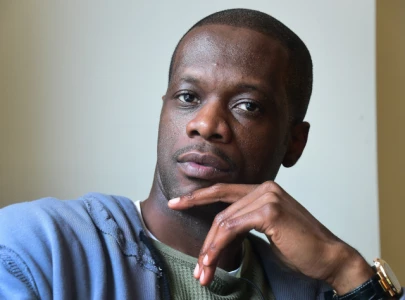
Chief Minister Omar Abdullah, who appealed for an end to the violence in a television broadcast on Sunday, was to meet Home Minister P Chidambaram and later Prime Minister Manmohan Singh, state officials said.
Kashmir is currently embroiled in the deadliest wave of unrest to hit the Muslim-majority region for two years. The death in early June of a 17-year-old student -- killed by a police tear-gas shell -- triggered a rolling series of protests against Indian rule that has seen 31 protestors killed, most of them as a result of police firing. Thirteen people have died since Friday alone, including four who were killed on Sunday when an arson attack on a police station ignited some stored explosives, demolishing the building. "There are people in the valley who want the cycle of deaths and killings to continue... I don't want them to win," Abdullah said in his address on a state-run Kashmiri TV channel. "I want your cooperation to defeat these elements who are using the blood of the youth for their political interests," he said.
A 20-year separatist insurgency in Indian Kashmir has claimed thousands of lives, although the level of violence had been on the decrease in recent years. India and Pakistan each hold part of Kashmir but claim it in full. The nuclear-armed neighbours have fought two wars over the region since independence in 1947. Indian officials say Pakistan-backed separatists are behind the latest unrest, but locals say it is the spontaneous result of years of pent-up frustration, and alleged abuses by police and paramilitary forces.
Decades of on-off political dialogue about the status of the disputed territory have made no tangible progress, and employment is running high, especially among young people.
In his television address, Abdullah acknowledged the underlying sense of resentment, but argued that further violence would only hinder efforts at bringing some economic relief to the insurgency-wracked region. "I know the youth of the valley is angry... it sees no hope... no light in this darkness. I want to lead them (and) show them light, but only if my government gets a chance to work," he pleaded. "Our children would not be able to compete with the rest of the world if situation like this continues. The future of the youth is in danger."
Police and paramilitary forces sought to enforce a strict curfew on Monday in the main Kashmiri city of Srinagar and other towns and villages across the Kashmir valley. Despite the heavy security presence, residents have regularly defied the persistent curfews to stage large-scale street demonstrations.
Police say they have only opened fire after coming under attack, and after first trying to disperse the crowds with baton charges and tear gas. Locals insist the protests have been vocal but peaceful. Last week, Abdullah's government ordered a judicial probe into the protestor deaths. The inquiry will be led by two retired judges and has been tasked with submitting a report within three months.

















COMMENTS
Comments are moderated and generally will be posted if they are on-topic and not abusive.
For more information, please see our Comments FAQ